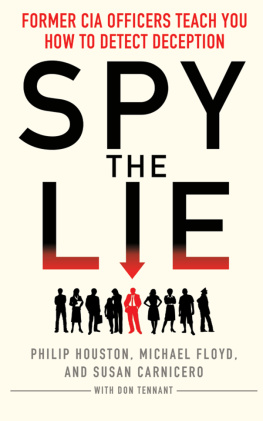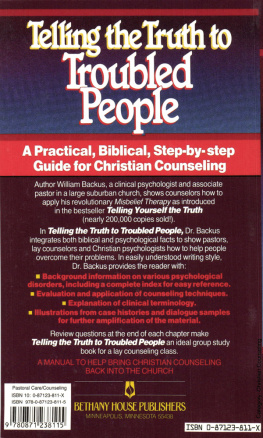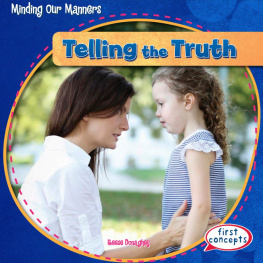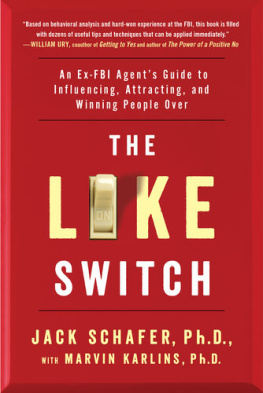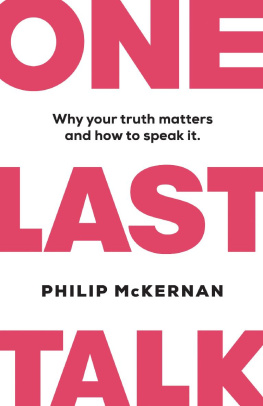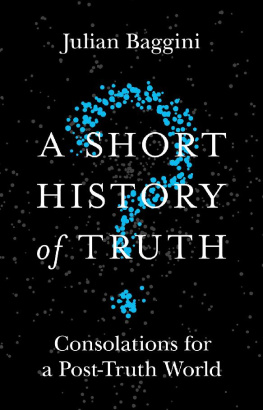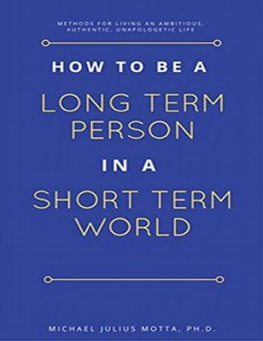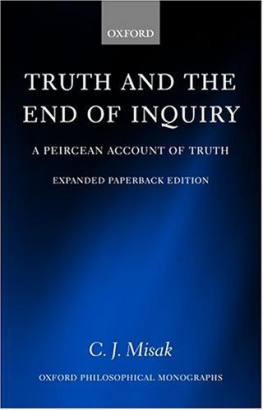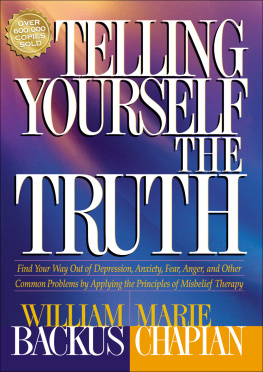
Thank you for buying this
St. Martins Press ebook.
To receive special offers, bonus content,
and info on new releases and other great reads,
sign up for our newsletters.

Or visit us online at
us.macmillan.com/newslettersignup
For email updates on Philip Houston, click here.
For email updates on Michael Floyd, click here.
For email updates on Susan Carnicero, click here.
For email updates on Peter Romary, click here.
For email updates on Don Tennant, click here.
The author and publisher have provided this e-book to you for your personal use only. You may not make this e-book publicly available in any way. Copyright infringement is against the law. If you believe the copy of this e-book you are reading infringes on the authors copyright, please notify the publisher at: us.macmillanusa.com/piracy.
For all whose pursuit of the truth keeps us safe
Its still dark outthe sun wont rise for another couple of hours. Youre standing in front of a heavily secured door that opens to a small, musty, windowless room in a nondescript building at a secret location outside the United States. On the other side of the door is a man who had been brought to the room several hours earlier, after a clandestine operation executed by U.S. military forces and intelligence operatives led to his capture. This man may have been involved in orchestrating the September 11 attacks that had changed life as you and your countrymen had known it.
The man, classified by the U.S. government as a high value detainee, won that distinction for a reason: The knowledge he possesses could be a treasure trove of information not only about the planning and execution of the September 11 attacks, but potentially about other attacks, possibly even more heinous, that are being plotted. At this moment, there is no higher priority in the War on Terror than extracting that information from this man. The lives of what could be thousands, or even tens of thousands, of innocent peoplemen, women, and childrencould hang in the balance. Your job is to get the man to tell you everything he knows. Its difficult to conceive of a more daunting task, with as much at stake. What approach, what techniques, give you the best possible chance of succeeding when you walk through that door?
This book will answer that question.
At its core, its a book about influence. Its about the process of exerting influence to elicit truthful information from a person who has a reasonnot uncommonly, a reason that involves life-altering consequencesto want to withhold that information. Some of the techniques that in recent years have been associated with this process have sparked an intense, emotional debate in the United States and around the world. Its especially intense and emotional when the discussion focuses on the organization to which we have largely dedicated our careers, and indeed much of our lives: the Central Intelligence Agency.
In our world, the process is commonly referred to as interrogation . Of course, its difficult to mention interrogation and the CIA in the same sentence without readily conjuring up preconceived notions, and disturbing mental images, of what the process must entail in our high-stakes world of counterespionage and counterterrorism. Such preconceptions can easily be forgiven, because there has been more than sufficient public disclosure of methods that have been employed since the War on Terror was declared on September 11, 2001, to substantiate the conclusions that many have legitimately drawn. Enhanced interrogation techniques is the euphemism of choice among its proponents. But it remains exactly that: a euphemism.
Sometimes, when the task at hand is to describe what something is, its helpful to describe what it isnt. This book is not a position paper on interrogation techniques employed by the Central Intelligence Agency, or any other agency or institution. It is not a vehicle for the delivery of an argument, nor an apology for anything that anyone sees as warranting an apology, nor is it an attempt to stifle any debate. But to the extent that the debate will continue over the interrogation techniques that we as a nation should be prepared to employ in the interest of protecting our national security, it is a debate that will continue outside these pages. Simply put, thats not our call.
All we can do is speak from our own experiences, drawn from careers that, in essence, were built around a single, quantifiable, yet extraordinarily challenging goal: getting people to tell the truth. Weve pursued that goal for decades, along career paths that intersected in a way that has enabled us to learn from each other, and to meld our individual experiences into a comprehensive, cohesive body of work. It is upon that body of work that our activities as a team, and specifically our methodology for getting to the truth, have been established.
Perhaps the creation and sophistication of that methodology can best be described as a team sport, with Phil Houston acting as the player-coach. Phil, who served in senior positions within the Office of Security during the course of his twenty-five years at the Agency, is widely considered by his peers, and by some senior officials in the U.S. government, to be among the best interrogators the CIA has ever had. Indeed, his track record includes successes in some of the highest-profile cases in the Agencys history. Michael Floyd, meanwhile, parlayed his experience and reputation as one of the nations foremost polygraph authorities to become a key resource in the fields of interviewing and interrogation not only in the CIA, but in the National Security Agency, as well. Susan Carniceros CIA career began as an operative under deep cover in the Agencys Directorate of Operations, now known as the National Clandestine Service. Susans unique skill set, including her expertise in criminal psychology, would prove to be an invaluable asset in establishing her as one of the Agencys most accomplished interrogators and screening specialists.
Our team was, to be sure, a formidable one. And smart enough to draft an ideal new player when the opportunity arose. That new player is Peter Romary, a seasoned trial attorney, educator, and internationally recognized expert in mediation and negotiation. Peter has devoted his career to service that is ultimately best encapsulated as pursuing the same goal as that of the rest of the team: getting people to tell the truth. With the team in place, then, the story of what we do and how we do it, and of how it can be practiced by anyone in any situation that involves eliciting truthful information from someone else, can be fully shared.
We took a similar tack in our previous book, Spy the Lie: Former CIA Officers Teach You How to Detect Deception , authored by the original trio of Phil, Michael, and Susan. In that book, we shared our methodology for determining whether or not someone is lying, and showed how it can be applied in everyday life. Those skills, as immensely valuable as they are, constitute a separate set of tools that need not be acquired in order to understand and apply our methodology for getting someone to tell you the truth. In other words, while it would be helpful, reading Spy the Lie is not a prerequisite for reading Get the Truth . That said, readers of Spy the Lie will recognize several familiar characters when they read this book. In that book, we showed how we determined that those characters were lying. In this one, the stories will revolve around how we got them to tell us the truth.
Next page

